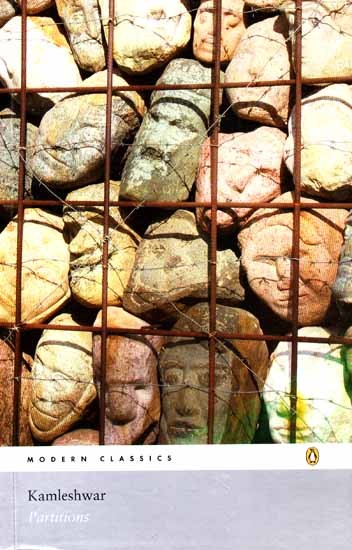By
Manjinder Kaur Wratch
Traditional history stockpiles bitter memories of the past which slush hatred and create divisions. Literature has a leading edge over traditional history as the creative powers of the writers have always invested in tales of love, compassion and friendship.
At the same time, literature does not fail to mirror ‘human frailties’ too and most of the times, these frailties are routed towards regret and purgation. Altogether, the canvas of literature never presents a woebegone world, the one beyond repair. Amos Oz, the Jewish writer underscores the import of “remedial insights” into the past, to counter half-truths of hatred, by asserting exemplars of ‘great affinity and empathy’. He shares:
“History which can provide remedial insights into the past is often cast aside. The analysis of history, its perspectives on society, often appease and serve to eliminate hatred. But the past spurns this logic of countering hatred. It merely weaves half-truths into tales of actual recollection and perpetuates these tales for centuries.”
In his seminal work, The Use and Abuse of History, Nietzsche argues for a combination of the unhistorical, the historical and the super-historical, as remedy to the “diseases of history.” He defines the “disease of history,” as the tendency of those in power to control history by suppressing the voices of the vanquished. The unhistorical are the memory narratives laid in the stirrings of human hearts, and expressed in oral-histories, which owing to their amnesiac tendencies are bound to be lost if not timely preserved. The historical is conventional history; and the super historical which integrates in, the vast regimes of literature and other allied arts has a sense of cultural vision.
Sahitya Akademi award-winning novel, Kitne Pakistan (2000) in Hindi, written by Kamleshwar and translated as Partitions (2006) in English by Ameena Kazi Ansari, mourns over the unnecessary divisions and myriad segments into which the world stands fissured today. In the novel, love comes as an antithesis to all the destructive and divisive politics of man, when lovers transcend the narrow confines of religious identities in their quest to find fulfilment beyond all boundaries. The novel presents many tales of human love, which evolve during the times of bloody massacres that ensued amidst the subcontinent’s Partition in 1947. But unfortunately all of these promising relationships get consumed in the fury of partition riots and other such meaningless conflicts.
Inspired from the Epic of Gilgamesh (circa 2100 BC), the novel’s guiding force and talisman is the love story of Runa- the beautiful devadasi and Enkidu- a brutal beast with divine powers. Love fructifies between the two when, Gilgamesh-the Sumerian hero of the Hittite civilization sets out on his mission to not only overcome pain and privation, but also to vanquish death itself, in his quest to create a better world for his people. This besets a pandemonium amongst the divinities of the various pantheons.
Yavnik- a Sumerian God, Vapun-a Sumerian deity and Babylonius- the Babylonian deity are all frightened that if Gilgamesh triumphs over death, the pristine environs of their abode may get polluted. So in compliance with Anu, the Sumerian deity, they send Enkidu to Earth in the guise of a human to exterminate Gilgamesh and his plans. Luckily Gilgamesh learns about the conspiracy of the gods. Familiar with the lustful ways of gods, Gilgamesh tries to tackle the beast-man by enticing him with the feminine charm of Runa.
But to the utter dismay of Gilgamesh and the gods, Enkidu and Runa get bridled in passionate love. Even after satisfying his lust, Enkidu remains ever enrapt in Runa’s love. An excerpt from the text articulates this: “More ancient than the history of the pyramids is the saga of human love. It was born when Runa and Enkidu, having gratified their carnal instincts, looked into each other’s eyes and discovered their souls.” Love brings a change of heart in Enkidu, and after an initial bout with Gilgamesh, the duo become the best of friends. The gods then send a fearsome bull down to the earth to kill Gilgamesh. Enkidu gets seriously injured by the ferocious beast, as he tries to save his friend Gilgamesh from its lethal attack. Despite Gilgamesh and Runa’s best care and efforts, Enkidu succumbs to his injuries. This is how world’s first love story meets its end due to the machinations of none other than the gods, but not before blessing mankind with the discoveries of love and friendship.
Even after the passage of centuries, Gilgamesh still struggles to come back with the antidote to cure death and suffering and to scavenge all the earth’s venom of hatred. But Runa managed to hide in her navel, King Gilgamesh’s eternal and fearless voice, well protected from the reach of gods who were always on a lookout to suppress it. Runa entrusts Gilgamesh’s voice to the care of the unnamed narrator-protagonist of the novel, called adeeb, which literally means a litterateur or poet, as she believed that “only a man of knowledge and integrity can keep it alive for centuries to come.” Adeeb heartily accepts Runa’s gifts of love, friendship, peace and prosperity on behalf of the entire mankind and infuses Gilgamesh’s voice into his bloodstream.
The metaphoric significance of this episode is to accentuate the role of litterateurs as ‘goodwill ambassadors of humanity.’ The bond that made Runa and Enkidu remain in eternal love with each other and discover spiritual solace is bequeathed to the sensibilities of man and lives there forever shielded from destruction and desecration, through the innate human goodness, portrayed and promoted vis-a-vis the conduit of good literature.
The novel also questions indiscreet human acts of lapse as well as episodes of ‘fall from grace’ of divinities. Kamleshwar, the novelist juxtaposes tales of love and friendship with narratives of man’s barbarity and images of bloodletting and debauchery only to let the readers surmise that love ushers in solace, growth and camaraderie while acrimony amongst races and people breeds distrust, hatred and divisions. Nothing sounds more apt than to conclude by taking a leaf from poet Keats love letter to Fanny Brawne: “I have been astonished that Men could die Martyrs for religion-I have shudder’d at it-I shudder no more- I could be martyr’d for my religion-Love is my religion- I could die for that- I could die for you.” Nonetheless, bards know it well not to limit this revelation to them alone but to bring it on in the public domain and make it Everyman’s principle of existence in these troubled times.



No Comments Yet!
You can be first to comment this post!